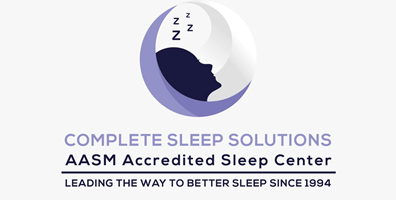
Sleep Apnea
This potentially life-threatening disorder is linked to irregular heartbeat, high blood pressure and heart failure. Sleep apnea can cause you to involuntarily stop breathing for up to one minute while sleeping. Symptoms of this condition include loud snoring, pauses in breathing and daytime sleepiness. In most cases, we can treat obstructive sleep apnea with a continuous positive airway pressure (CPAP) device. The CPAP device helps you breathe easy throughout the night.
Overview
Sleep apnea is a potentially serious sleep disorder in which breathing repeatedly stops and starts. If you snore loudly and feel tired even after a full night's sleep, you might have sleep apnea.
The main types of sleep apnea are:
- Obstructive sleep apnea, the more common form that occurs when your throat/airway muscles relax during sleep which can cause your airway to narrow or close as you breathe in. This restricts the body’s ability to take in air, which can lower the oxygen level in your blood. Then your brain senses the pause in breathing and briefly wakes you from sleep so that you can reopen your airway. This awakening is usually so brief that you do not remember it. You might snort, choke or gasp. This pattern can repeat itself 5-30+ times each hour of the night which can impair your ability to reach the deep, restful phases of sleep.
- Central sleep apnea, which occurs when your brain doesn't send proper signals to the muscles that control breathing
- Complex sleep apnea syndrome, also known as treatment-emergent central sleep apnea, which occurs when someone has both obstructive sleep apnea and central sleep apnea
If you think you might have sleep apnea, see your doctor. Treatment can ease your symptoms and might help prevent heart problems and other complications.
Symptoms
The signs and symptoms of obstructive and central sleep apneas overlap, sometimes making it difficult to determine which type you have. The most common signs and symptoms of obstructive and central sleep apneas include:
- Loud snoring
- Episodes in which you stop breathing during sleep — which would be reported by another person
- Gasping for air during sleep
- Awakening with a dry mouth
- Morning headache
- Difficulty staying asleep (insomnia)
- Excessive daytime sleepiness (hypersomnia)
- Difficulty paying attention while awake
- Irritability
RISK FACTORS
Factors that increase the risk of having Obstructive Sleep Apnea include:
- Smokers are three times more likely to have obstructive sleep apnea than are people who have never smoked. Smoking can increase the amount of inflammation and fluid retention in the upper airway.
- Obesity greatly increases the risk of sleep apnea. Fat that deposits around your upper airway can obstruct your breathing.
- Sleep apnea occurs significantly more often in older adults.
- Neck circumference over 16.5 in. People with thicker necks might have narrower airways.
- Men are two to three times more likely to have sleep apnea than are women. However, women increase their risk if they are overweight, and their risk also appears to rise after menopause.
- Having family members with sleep apnea might increase your risk of a narrow airway.
- Use of alcohol, sedatives or tranquilizers that can relax the muscles in your throat, which can worsen obstructive sleep apnea.
COMPLICATIONS
There are various complications that can occur if sleep apnea remains untreated including:
- Daytime fatigue - repeated awakenings associated with sleep apnea make normal, restorative sleep impossible, making severe daytime drowsiness, fatigue, and irritability likely.
- Daytime sleepiness - finding yourself falling asleep at work, while watching TV or even when driving. People with sleep apnea have an increased risk of motor vehicle and workplace accidents.
- Concentration or memory impairment - difficulty concentrating and increasing issues with memory due to the impaired delivery of oxygen to the brain at night.
- Mood Changes - quick-tempered, moody, or depressed. Children and adolescents with sleep apnea might perform poorly in school or have behavior problems.
- High blood pressure - sudden drops in blood oxygen levels that occur during sleep apnea increase blood pressure and strain the cardiovascular system. Having obstructive sleep apnea increases your risk of high blood pressure (hypertension) especially in the early morning.
- Cardiovascular problems – sleep apnea might also increase your risk of recurrent heart attack, stroke, and abnormal heartbeats, such as atrial fibrillation. If you have heart disease, multiple episodes of low blood oxygen (hypoxia or hypoxemia) can lead to sudden death from an irregular heartbeat.
- Type 2 diabetes - having sleep apnea increases your risk of developing insulin resistance and type 2 diabetes.
- Complications with medications and surgery - sleep apnea is also a concern with certain medications and general anesthesia. People with sleep apnea might be more likely to have complications after major surgery because they are prone to breathing problems, especially when sedated and lying on their backs. Before you have surgery, tell your doctor about your sleep apnea and how it is being treated.
- Liver problems - people with sleep apnea are more likely to have abnormal results on liver function tests, and their livers are more likely to show signs of scarring (nonalcoholic fatty liver disease).
TREATMENT OPTIONS
Request an Appointment at Complete Sleep Solutions

